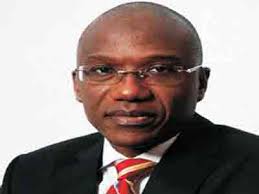The Assets Management Company of Nigeria (AMCON) is battling with the challenges of economic downturn, including decline in crude oil prices in its efforts to repay N5.6 trillion bond obligations to banks.
Managing Director and Chief Executive of AMCON Ahmed Kuru disclosed this at an interactive session with journalists in Lagos on Tuesday.
He said that AMCON is expected to pay up N5.6tr of the funds raised through bond issue over the next 10 years, but it is finding it difficult to get enough money to pay up.
He explained that banks which contribute 70 per cent of the AMCON sinking fund is growing at about 12 per cent which is less than the 20 per cent projected growth.
Banks contribute 0.5 per cent of their balance sheet into the AMCON sinking fund but Kuru says that the contribution of banks to the sinking fund is going to fall short of expectations this year.
The bad bank is also faced with the challenges created by the dwindling oil price. According to him, the low price of crude oil at the international market is affecting its ability to sell off some of its assets and pay up on its obligations.
Kuru explained that decline in price of crude in the international market has affected the valuation of some of the assets which it is holding. With over 30 per cent of its assets in the oil and gas sector, he said, “we all know what is happening to the price of crude. What it does is that it affects the price of the assets that we are holding.”
He also listed as challenges of the bad bank the slow nature of the judicial system, “We have some obligors that are trying to abuse court processes. We are challenged with an economy that has low purchasing power and this year, we were also challenged with the elections and the aftermath of the elections and the changes that were experienced in AMCON.
On the increasing non-performing loans being held by banks, Kuru assured that AMCON would no longer buy off any NPL from any bank as he said this will lead to irresponsible lending by the banks.
Stating that AMCON was not set up to be in existence forever, Kuru said if it continues “to be intervening in purchasing non-performing loans, it is more like encouraging rascality, people will go and book facilities that are terrible that they know will go bad then someone will come and take it off at the end of the day. I don’t think any economy should support that.
“If we leave our door open to purchase new loans, that means we will never close shop. Where there is a banking business there must be bad loan and any cycle where you have economic downturn, the first casualty is the loan. If you have to do proper potential analysis of the assets that banks are holding, you will be shocked by what you will find. Financial institutions are businesses. People set them up to make profit; they must be allowed to fail if they fail to make profit,” he added.













